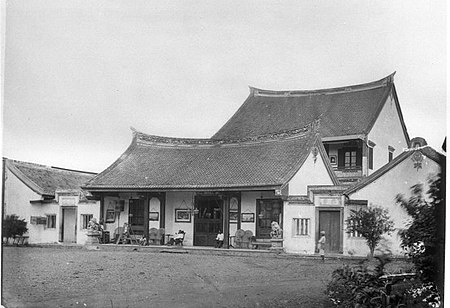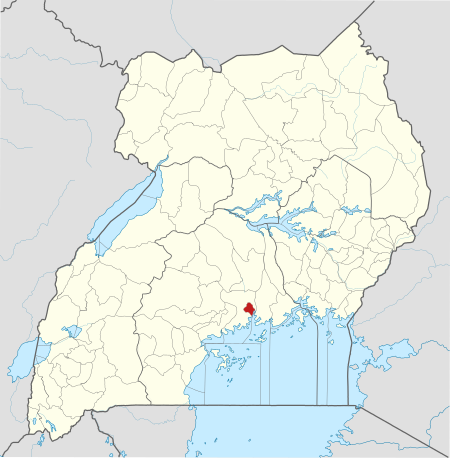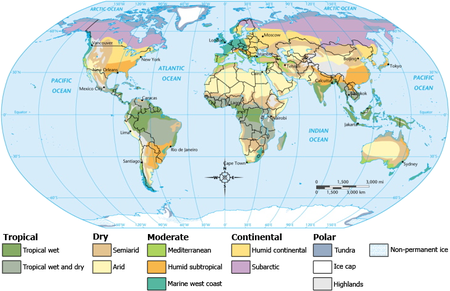Marxist literary criticism
|
Read other articles:

American actress and director Chandra WilsonChandra Wilson in 2013BornChandra Danette Wilson (1969-08-27) August 27, 1969 (age 54)[1][2][3]Houston, Texas, U.S.Alma materNew York UniversityOccupations Actress director Years active1989–presentChildren3 Chandra Danette Wilson (born August 27, 1969) is an American actress and director. She is best known for her role as Dr. Miranda Bailey in the ABC television drama Grey's Anatomy since 2005, for which she has…

Kapitan Khouw Yauw KieKapitan Khouw Yauw Kie dan sepupunya, Khouw Kim An di Candra NayaLahirBatavia, Hindia BelandaMeninggal1908Batavia, Hindia BelandaPekerjaanKapitan Cina, birokrat, dan tuan tanahTahun aktifAkhir abad ke-19Suami/istriTan Him Nio[1]AnakKhouw Tjoei Nio[1]Orang tuaLetnan Khouw Tjeng Po (bapak) Dalam artikel ini, nama keluarganya adalah Khouw. Khouw Yauw Kie, Kapitan Cina (meninggal pada tahun 1908), juga ditulis sebagai Khouw Jaouw Kie atau Yaouw Kee, dulu ad…

Local government unit in Uganda For the football club, see Kampala Capital City Authority FC. Kampala Capital City AuthorityKCCAAgency overviewFormed2011; 13 years ago (2011)JurisdictionGovernment of UgandaHeadquartersKampala, UgandaEmployees1,133 (2018)[1]Agency executivesLord Mayor, Erias LukwagoExecutive director, Dorothy Kisaka[2]Parent agencyMinistry of Kampala Capital City Authority AffairsWebsitekcca.go.ug Kampala Capital City Authority (KCCA) is the lega…

烏克蘭總理Прем'єр-міністр України烏克蘭國徽現任杰尼斯·什米加尔自2020年3月4日任命者烏克蘭總統任期總統任命首任維托爾德·福金设立1991年11月后继职位無网站www.kmu.gov.ua/control/en/(英文) 乌克兰 乌克兰政府与政治系列条目 宪法 政府 总统 弗拉基米尔·泽连斯基 總統辦公室 国家安全与国防事务委员会 总统代表(英语:Representatives of the President of Ukraine) 总理…

Not to be confused with Genetic history of the African diaspora. Population structure of African populations in a broad context. ADMIXTURE analysis of 2,194 individuals from 81 populations for 16,420 SNPs reveals both well-established and novel ancestry components in African populations. The genetic history of Africa summarizes the genetic makeup and population history of African populations in Africa, composed of the overall genetic history, including the regional genetic histories of North Afr…

Larix deciduaLorik Eropa Larix decidua European larch in l'A Bran, (1798 m) Val d'Annivier.Status konservasiRisiko rendahIUCN42309 TaksonomiDivisiPinophytaKelasPinopsidaOrdoPinalesFamiliPinaceaeSubfamiliLaricoideaeGenusLarixSpesiesLarix decidua Mill., 1768 Tata namaSinonim takson Daftar Abies larix (L.) J.St.-Hil. Larix caducifolia Gilib. Larix europaea DC. Larix excelsa Link Larix gracilis A.Dietr. Larix larix (L.) H.Karst. Larix pyramidalis Salisb. Larix sudetica Domin Larix vulgaris Fisch. ex…

Військово-музичне управління Збройних сил України Тип військове формуванняЗасновано 1992Країна Україна Емблема управління Військово-музичне управління Збройних сил України — структурний підрозділ Генерального штабу Збройних сил України призначений для плануван�…

This article has multiple issues. Please help improve it or discuss these issues on the talk page. (Learn how and when to remove these template messages) This article contains content that is written like an advertisement. Please help improve it by removing promotional content and inappropriate external links, and by adding encyclopedic content written from a neutral point of view. (December 2014) (Learn how and when to remove this message) The topic of this article may not meet Wikipedia's nota…

This article needs additional citations for verification. Please help improve this article by adding citations to reliable sources. Unsourced material may be challenged and removed.Find sources: 1948 Fukui earthquake – news · newspapers · books · scholar · JSTOR (September 2011) (Learn how and when to remove this message)You can help expand this article with text translated from the corresponding article in Japanese. (June 2021) Click [show] for impo…

Home computer This article needs additional citations for verification. Please help improve this article by adding citations to reliable sources. Unsourced material may be challenged and removed.Find sources: IBM PCjr – news · newspapers · books · scholar · JSTOR (April 2023) (Learn how and when to remove this message) IBM PCjrIBM PCjr with original chiclet keyboard, PCjr color display, and 64 KB memory expansion cardManufacturerTeledyne, Lewisburg, …

Computer series Philco was one of the pioneers of transistorized computers. After the company developed the surface barrier transistor, which was much faster than previous point-contact types, it was awarded contracts for military and government computers. Commercialized derivatives of some of these designs became successful business and scientific computers. The TRANSAC (Transistor Automatic Computer) Model S-1000 was released as a scientific computer. The TRANSAC S-2000 mainframe computer syst…

Sociologic theory on crime and neighbourhood ecology This article has multiple issues. Please help improve it or discuss these issues on the talk page. (Learn how and when to remove these template messages) This article includes a list of general references, but it lacks sufficient corresponding inline citations. Please help to improve this article by introducing more precise citations. (May 2014) (Learn how and when to remove this message) This article is written like a personal reflection, per…

American investigative journalist Jeremy ScahillScahill in 2013BornJeremy M. Scahill1974 (age 49–50)Chicago, Illinois, U.S.OccupationInvestigative journalistEmployerThe InterceptNotable workBlackwater Jeremy Scahill (born 1974) is an American activist , author and investigative journalist. He is a founding editor of the online news publication The Intercept and author of Blackwater: The Rise of the World's Most Powerful Mercenary Army (2007), which won the George Polk Book Award. His …

طرفة بن العبد طرفة بن العبد البكري رسم تَخيُلي للشاعر طرفة بن العبد من كتاب «مِنْ عُيُونِ اَلشَّعْرِ» لـناجي القشطيني، عام 1967. معلومات شخصية اسم الولادة طرفة بن العبد بن سفيان البكري الميلاد 543المالكية، إقليم البحرين التاريخي تاريخ الوفاة 569 سبب الوفاة إعدام الجنسية عربي ال…

Ini adalah nama Mandailing, marganya adalah Lubis. Tetty Melina Lubis Pa Sahli Tk II Kasad Bidang IndagMasa jabatan29 Maret 2023 – 22 Maret 2024PendahuluSurantoPenggantiMuhammad RusliDirektur Hukum Angkatan Darat Ke-28Masa jabatan18 Juni 2020 – 29 Maret 2023PendahuluWahyoedho IndrajitPenggantiAteng Karsoma Informasi pribadiLahir23 Mei 1966 (umur 58)Padang Sidempuan, Sumatera UtaraAlma materSepawamil (1992)Universitas JambiSekolah Tinggi Hukum Militer AHM-PTHMUniversita…

Artikel ini sebatang kara, artinya tidak ada artikel lain yang memiliki pranala balik ke halaman ini.Bantulah menambah pranala ke artikel ini dari artikel yang berhubungan atau coba peralatan pencari pranala.Tag ini diberikan pada Januari 2023. Sebagian besar klub sepak bola di Iran, terutama Esteghlal dan Persepolis, sepenuhnya didanai dan secara tidak langsung diintervensi oleh pemerintah dan organisasi militer.[1][2] Liga Pro Teluk Persia Pemilik klub Liga Pro Teluk Persia Tip…

العلاقات البوتانية الغينية بوتان غينيا بوتان غينيا تعديل مصدري - تعديل العلاقات البوتانية الغينية هي العلاقات الثنائية التي تجمع بين بوتان وغينيا.[1][2][3][4][5] مقارنة بين البلدين هذه مقارنة عامة ومرجعية للدولتين: وجه المقارنة بوتان غينيا �…

Regional newspaper focusing on the LGBT community Bay Area ReporterTypeWeekly LGBT newspaperOwner(s)BAR Media, Inc.Founder(s)Bob RossPublisherMichael YamashitaNews editorCynthia LairdFounded1971LanguageEnglishHeadquarters44 Gough Street, Suite 204San Francisco, CaliforniaUnited StatesCirculation29,000[1]OCLC number26378505 Websiteebar.comFree online archivescdnc.ucr.edu The Bay Area Reporter is a free weekly LGBT newspaper serving the LGBT communities in the San Francisco Bay Area. It is…

此條目没有列出任何参考或来源。 (2018年10月11日)維基百科所有的內容都應該可供查證。请协助補充可靠来源以改善这篇条目。无法查证的內容可能會因為異議提出而被移除。 柯本气候分类法中的温带大陆性湿润气候,东北亚地区也称温带季风气候 温带大陆性湿润气候,又称湿润大陆性气候,是一种气候类型,温度年际变化较大。夏季炎热、冬季寒冷(低于0°C)。比…

Im Zeitraum 1943 bis 1955 kam es zu einer Reihe von Veränderungen in den Streitkräften der UdSSR. Das betraf unter anderem Dienstgrade, Rangabzeichen und Uniformen. Inhaltsverzeichnis 1 Veränderungen 2 Generalissimus der Sowjetunion 3 Dienstgrade und Dienstgradabzeichen Heer und Luftwaffe 3.1 Waffenfarben 3.2 Schulterklappen Alltagsgebrauch 3.2.1 Soldaten und Unteroffiziere 3.2.2 Offiziere bis Armeegeneral 3.2.3 Marschall bis Generalissimus 3.2.4 Offiziere 3.3 Schulterklappen Feldeinsatz 3.3.…


